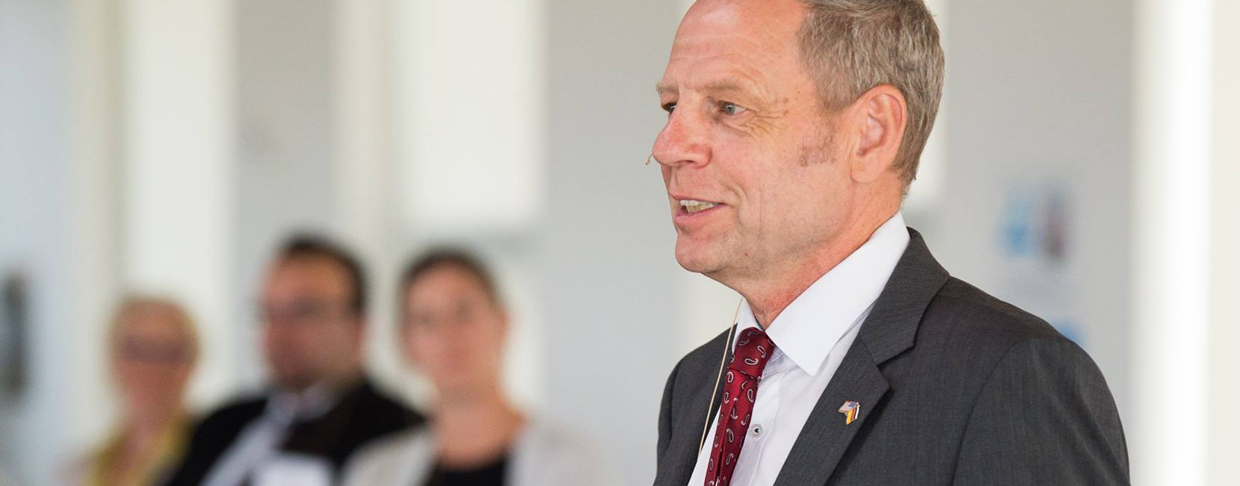
SUSTAINABLE + SMART CITIES
Climate Smart Cities India (CSC) – in Cooperation with German Institut für Urbani Affairs (difu), National Institute for Urban Affairs (NIUA) and GIZ India
2019-2022
Topic:
The “Smart City Initiative” of India aims to develop Indian City “smart” and resilient for the future. Since 2017, the Indian Government finances and supports a variety of measures, mostly in the realm of the technical infrastructure. However, and as first results show, in many cases the climate-relavancy of these measures was not taken into account or neglected in the planning and implementation. This also applies to the integration of corresponding processes and structures into daily municipal practice and routines.
Task:
Therefore, the task of this project is to train and support the municipal responsible engineers and planners to integrate climate-relevant aspects of mitigation and adaption in in the planning of smart measures and city development in general. Interactive workshops with practioneers from Indian municipalities (e.g. Bhubaneswar, Coimbatore und Kochi) in the fields of construction and demolition waste, urban green infrastructure, green buildings and rain water treatment are developed and conducted in the project time-frame. This includes the coordination of international and national contributions and the development of concrete steps for the introduction or optimization of management structures within local governments.
Link
Integrated Urban Development and Co-Production for Indian Cities (IGSI) – Funded by the Federal Ministry for Education and Research – in cooperation wiht TU Berlin, InnoZ and various architectural and engineering companies
TU Berlin (Coordination) – Professor Elke Pahl-Weber, Marcus Jeutner
2017
Topic
The Indo-German Smart City Network is an interdisciplinary think tank aimed at supporting urban development processes in India. Integrated planning and inclu-sion of relevant stakeholders link infrastructure with spatial planning and socio-economic development – particularly in connection with the Smart City movement.
Task
Co-moderation of workshops on sustainable urban development in Delhi (Connaught Place) and in Coimbatore (Karunya University Campus) – held in urban labs using Urban Design Thinking tools. Focus: Localised waste management solutions.
Link
Digitalisation and Smart City: The Impact of ICT on Municipal Services – Practice, Knowledge and Experience Transfer
German Institute of Urban Affairs (Difu) – Jens Libbe
8 – 9 May 2017
Topic
What role does digitalisation play in urban infrastructures and what are the challenges involved in urban development and infrastructure planning? How do these impact services?
Seminar for municipal managers and specialists working in urban development, energy management and transport planning, as well as infrastructure operators and members of the city council.
Task
Kick-off presentation: City 4.0 – Digitalisation and its impact on spaces and city functions
Link
Horizon 2020 – Smart Cities and Communities (SCC1) Lighthouse Projects
European Commission – Damian Bornas-Cayuela
2015, 2017
Topic
Sustainable development of urban areas is a challenge of key importance. It requires new, efficient, and user-friendly technologies and services, in particular in the areas of energy, transport and ICT. Integrated innovative solutions for Positive Energy Blocks/Districts will be developed, tested and performance monitored in the Lighthouse Cities. Projects will consider the interaction and integration between the buildings, the users and the larger energy system as well as implications of increased electromobility, its impact on the energy system and its integration in planning.
Task
Independent or team evaluation of each of the 150-page proposals (consortia of three Lighthouse Cities) to ascertain whether the expected impacts are good or excellent, and to assess the quality and efficiency of the proposals’ implementation.
Link
Support and Advice in Developing a Smart Energy Cities Strategy Document and Business Plan
Fraunhofer Institute for Solar Energy Systems (ISE) – Gerhard Stryi-Hipp
2014-2015
Topic
In connection with the Smart Energy Cities initiative, the Fraunhofer Institute for Solar Energy Systems (ISE) plans to systematically expand and offer its portfolio and expertise in the areas of research, development, consulting and services for cities and municipalities wanting to make their energy systems more sustainable.
Task
Analysing existing approaches used in the ISE and combining them into a joint, cross-sectoral product, developing the Institute’s special characteristics and strengths (USP) – especially with regard to energy scenario modelling, analysing municipal needs, market analysis, cooperation approaches with municipal play-ers, co-design of internal and external workshops for potential clients, and producing marketing and informational material.
Link
Morgenstadt/City Insights Initiative: Research Trip to Singapore and National Platform on Future Cities Fraunhofer Society
2013 – 2015
Topic
The Morgenstadt-City of Tomorrow project by the Fraunhofer Society was a preliminary survey of the German National Platform for Future City Development. Main research focus regarding the City Insights Study Singapore was on the organisational structure and legal regulations of the city state.
Task
Expert interviews and analysis with the Singapore city administration, other stakeholders and university laboratories (MIT), member of the working group on research and cities of the National Platform for the City of the Future
Working Group on 2050 Energy Supply
Climate Alliance – Dr. Dag Schulze
2012-2015
Topic
The Climate Alliance 2050 Energy Supply Working Group focuses on issues involving future energy supply in cities. It serves exchange and dialogue between and further training of experts in Climate Alliance cities.
Task
Drafting a working paper and moderating expert workshops on the topic of Smart City, its role and the associated technological solutions for local climate action and local climate action plans.
Link
